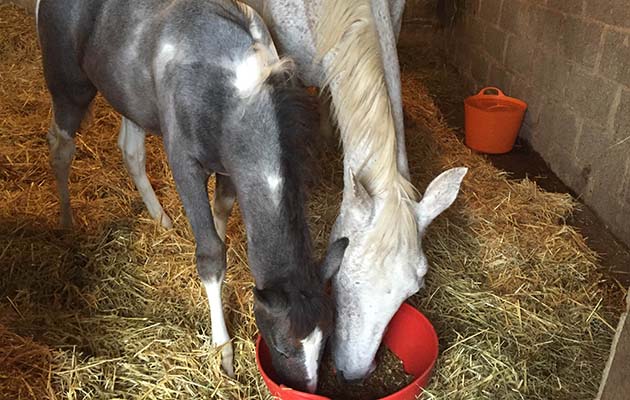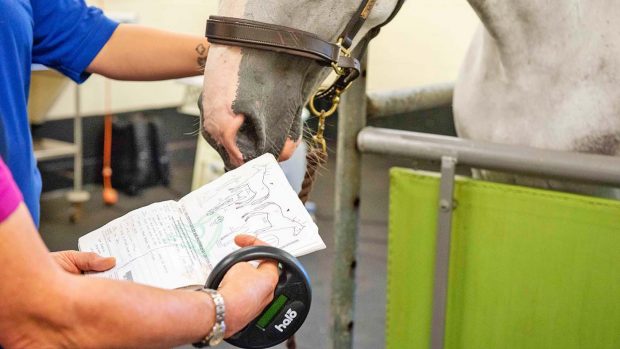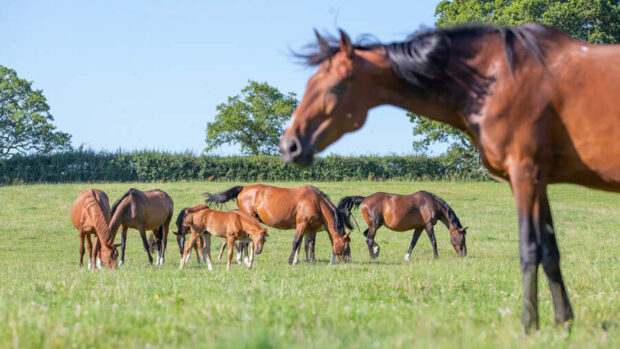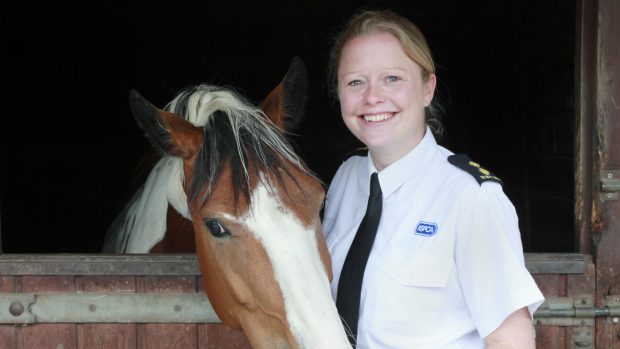An emaciated mare rescued with her foal, who went on to have another to the surprise of her rehomer, is being celebrated this Mother’s Day (6 March) by the RSPCA.
Connie was rescued after being found emaciated in a field in Aylesbury in October 2014.
She was struggling to feed her six week-old foal.
The foal named Skippy was weaned early and Connie taken in by RSPCA animal collection officer Kate Wright in January 2015.
At her Bedfordshire yard Connie soon began to put on weight, but Kate thought it was because she was being so well fed.
To her surprise six months later she arrived at the yard to find Connie showing signs of labour, despite her having failed pregnancy tests.
The next day “Miracle” was born.
 “Connie had been gaining condition during the six months after I rehomed her but I put it down to my own hard work building her up,” Kate said.
“Connie had been gaining condition during the six months after I rehomed her but I put it down to my own hard work building her up,” Kate said.
“I never thought she might be in foal but when she started lactating the vet examined her, he could feel two little hooves. By the time I arrived the next day Miri had been born.”
The filly’s older brother Skippy is now 18 months old and has found a new home near Peterborough with David Beale and his daughter, Mel.
“We fostered Skippy last year to keep our other rescue pony Acorn company, but once he was here and settled there was just no way were going to let him go. He is very slight, we’re still not sure what his breeding is, but he moves beautifully when he trots and canters,” said David.
Related articles:
- RSPCA employs extra staff to tackle equine crisis
- Plight of ‘invisible’ horses highlighted by charity
- RSPCA warns of Kent ‘horse crisis’: 300 calls in two weeks *warning graphic images*
Connie’s story is not shared by many of the other neglected horses in Britain, warns the RSPCA.
“People still seem to think that breeding horses is a cheap and easy way to make money, but in reality it takes an awful lot of time, consideration and money to do it properly,” said the RSPCA’s equine rehoming officer Claudia Corner
“Fortunately Connie was one of the lucky ones to be rescued in time and her foals to be born healthy. Sadly, many other mares are not as lucky.”




